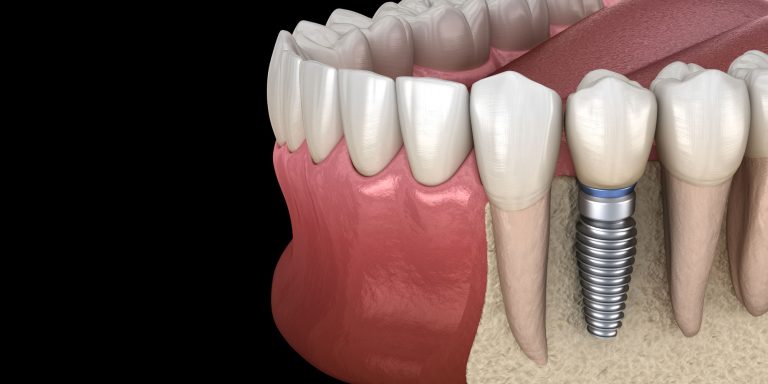In the ever-evolving field of reproductive medicine, technology plays a pivotal role in helping individuals and couples achieve their dream of parenthood. The Best IVF Center In Patna is at the forefront of embracing technological advancements and breakthroughs to improve the success rates and overall experience of their patients. In this article, we will delve into the significant role of technology in these centers, exploring the latest advancements that are changing the landscape of fertility treatments.
1. Cutting-Edge Lab Equipment
The laboratory is the heart of any IVF center, where eggs and sperm are fertilized, embryos are cultured, and various diagnostic tests are performed. To enhance the chances of success, the best IVF centers invest in state-of-the-art lab equipment.
Time-Lapse Imaging: One such advancement is time-lapse imaging, a technology that allows continuous monitoring of embryo development. This non-invasive technique provides embryologists with valuable insights into embryo quality, helping them select the healthiest embryos for transfer.
Cryopreservation Techniques: Advanced cryopreservation methods, such as vitrification, have revolutionized the freezing and thawing of eggs and embryos. This has significantly improved the survival rates of frozen specimens, allowing for more flexibility in treatment timing and reducing the need for fresh IVF cycles.
2. Pre-implantation Genetic Testing (PGT)
Pre-implantation genetic testing is a remarkable advancement in IVF technology that allows for the selection of embryos with the best genetic makeup, minimizing the risk of inherited genetic disorders.
PGT-A (Aneuploidy Screening): PGT-A is used to screen embryos for chromosomal abnormalities. The best IVF centers offer PGT-A to identify and transfer genetically healthy embryos, increasing the likelihood of a successful pregnancy and reducing the risk of miscarriage.
PGT-M (Monogenic Disorders): For couples at risk of passing on specific genetic disorders, PGT-M is a game-changing technology. It enables the identification of embryos free from the targeted genetic condition.
3. Egg and Sperm Freezing
The ability to freeze and store eggs and sperm has been a significant development in reproductive medicine, providing individuals and couples with more options and flexibility in their fertility journey.
Preserving Fertility: Egg freezing, in particular, has become an increasingly popular option for women who wish to preserve their fertility. This technology allows women to store their eggs at a younger age, providing them with a better chance of conceiving in the future.
Sperm Banking: Sperm freezing is also a valuable resource for men facing potential fertility issues. It allows men to store their sperm for use in future IVF cycles.
Also Read: Ovary Meaning in Hindi
4. Advanced Ultrasound and Imaging
Ultrasound technology is a cornerstone of fertility treatment, and advancements in this field have improved the accuracy and safety of IVF procedures.
3D/4D Ultrasound: The use of 3D and 4D ultrasound imaging provides a more detailed view of the reproductive organs, helping clinicians detect any structural abnormalities or polyps that may interfere with conception.
Transvaginal Ultrasound-Guided Procedures: Transvaginal ultrasound is commonly used for egg retrieval and embryo transfer. It offers real-time visualization, ensuring precise and minimally invasive procedures.
5. Artificial Intelligence and Data Analysis
In the age of big data, IVF centers are harnessing the power of artificial intelligence (AI) and data analysis to improve treatment outcomes.
Predictive Algorithms: AI can analyze large datasets of patient information and treatment outcomes to develop predictive algorithms. These algorithms help embryologists select the best embryos for transfer based on past success rates.
Treatment Optimization: Data analysis allows IVF centers to continuously optimize treatment protocols, resulting in improved success rates and reduced treatment duration.
6. Telemedicine and Virtual Consultations
The best IVF centers are increasingly embracing telemedicine to provide convenient and efficient care to patients.
Virtual Consultations: Telemedicine enables patients to consult with fertility specialists from the comfort of their homes. This technology is particularly valuable for individuals who live in remote areas or those with busy schedules.
Remote Monitoring: Some IVF treatments require close monitoring. Telemedicine allows patients to share vital information and test results with their medical team without the need for frequent in-person visits.
Conclusion:
Technology is an essential cornerstone of the best IVF centers, driving advancements and breakthroughs that improve the chances of success for individuals and couples on their fertility journey. From cutting-edge lab equipment and pre-implantation genetic testing to egg and sperm freezing, advanced ultrasound, artificial intelligence, and telemedicine, these innovations are changing the landscape of reproductive medicine.
As you consider embarking on your own IVF journey, it’s crucial to research and choose an IVF Center In Bihar that embraces these technological advancements and utilizes them to provide the best possible care. Keep in mind that while technology plays a significant role, the experience and expertise of the medical team and the center’s approach to individualized care are equally vital factors in achieving a successful outcome.
Ultimately, the synergy of technology and expert medical care offered by the best IVF centers is making the dream of parenthood a reality for countless individuals and couples worldwide. Embrace these advancements and choose a center that prioritizes both technology and compassionate care to optimize your chances of a successful IVF journey.
















+ There are no comments
Add yours